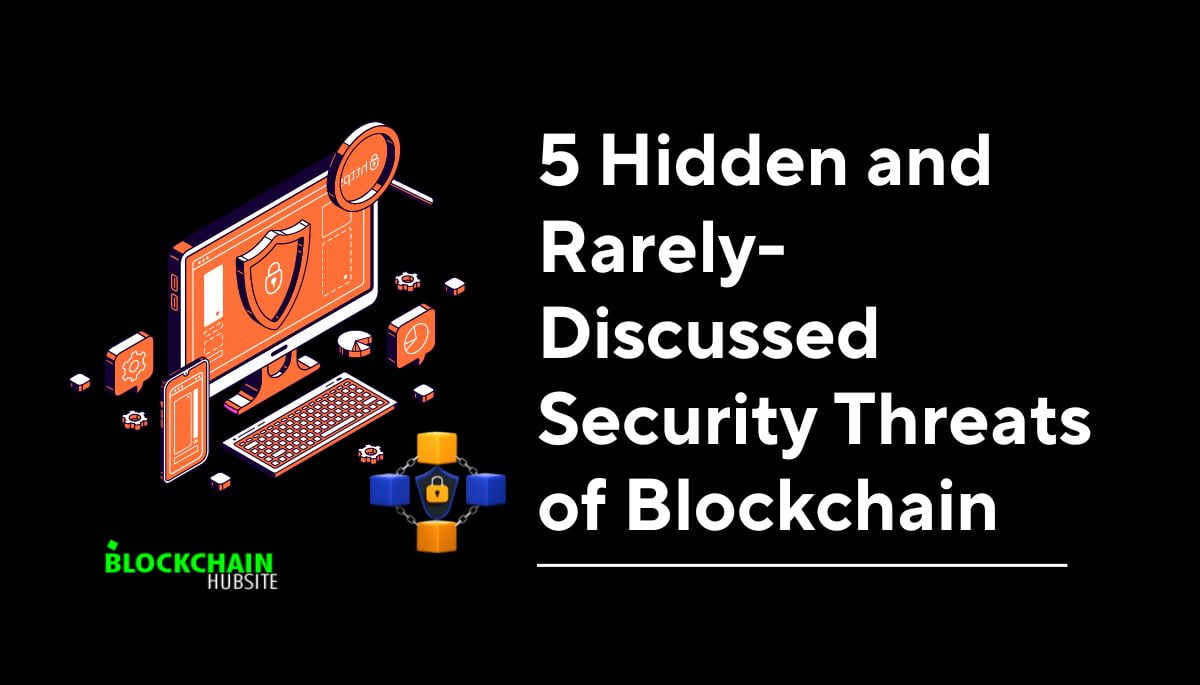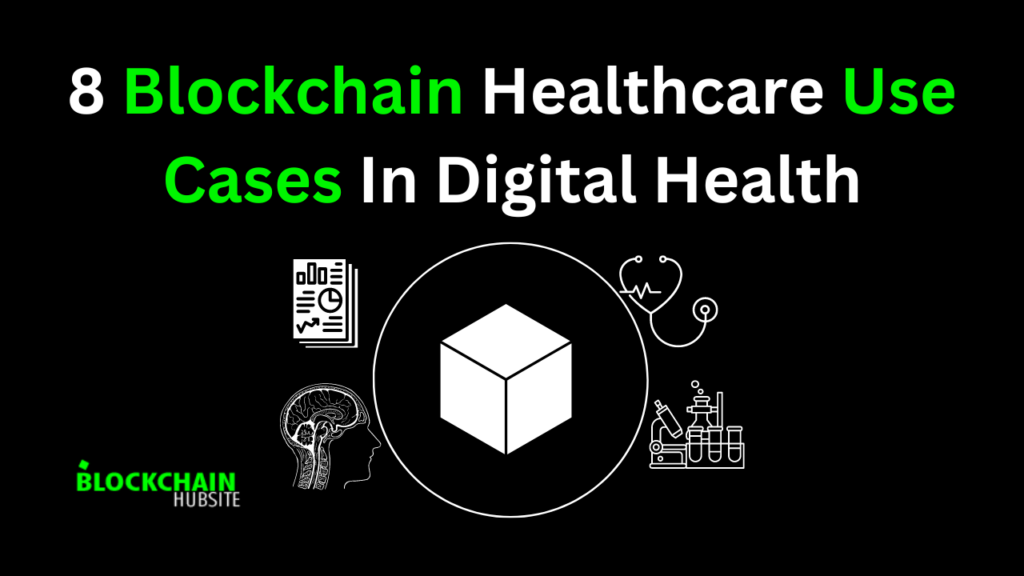
Table of Contents
Over the last decade, blockchain technology has emerged as the go-to secure framework for constructing a wide range of data systems. Companies in many industries, from banking to healthcare, are using blockchain to meet their needs for data security.
This innovative new technology has taken so much publicity that hackers, thieves, and other bad actors have turned it into a hot new target. Do not assume that the blockchain’s security protocols are flawless. They provide excellent security but cannot eliminate the possibility of data loss. There are still issues with blockchain security.
Blockchain Security Services Simplified

A group of techniques and technologies known as “blockchain security services” are used to safeguard blockchain networks and applications against various security risks and attacks.
Protecting your data with the best blockchain security services can allow you to take advantage of everything this exciting new technology offers without fear of someone gaining access.
In this blog, let’s thoroughly understand how to add extra layers of security through blockchain security services.
Develop a Strong, Secure Service Validated By Independent Infosec Pros
Follow these steps to create a robust and secure service that independent information security professionals have validated:
1. Keep your Blockchain Security risks under Control

Since blockchain technology is rapidly expanding, concerns about potential liabilities and unexpected weaknesses are natural.
For new businesses, making decisions about blockchain security without professional advice can be challenging due to the lack of regulatory requirements; for example, choosing the right protocols and establishing robust processes need continual research and integration. The problem is that there isn’t much room for error or supervision here.
Risks Associated With Blockchain Implementations Include
- Lack of security vulnerability coverage
- Lack of security vulnerability knowledge
- Encryption Key Storage Security
- Lack of code scanning and security testing
- Operational risks
- Cryptographic keys and HSM
- Phishing, SIM swap and other shenanigans
- Weak smart contract implementations that triggered breaches
- 51% attacks
- Identity or financial value theft in the form of cryptocurrencies
2. Avoid Security And Business Crises
- Establish a proactive security culture in your organization. Encourage employees to report security incidents and implement clear processes for dealing with them.
- Maintain compliance with security best practices and industry standards, and regularly analyze and update your security measures to ensure they are effective against new and evolving threats.
- Conduct regular security audits and penetration testing to identify and address vulnerabilities in your systems and processes.
- Generate an emergency response plan to ensure you’re ready to respond quickly and effectively in the case of a security breach or crisis.
- In the case of a security incident or breach, keep customers and stakeholders informed clearly and effectively. Make it clear what caused the incident, what steps are being taken to resolve it, and what measures are being implemented to avoid similar incidents in the future.
- Create a solid backup and emergency recovery plan to ensure that important company operations can continue during a security breach or other crisis.
3. Preserve your Blockchain’s Integrty

- Use strong cryptography to secure transactions and protect against tampering and unauthorized access.
- Create a decentralized consensus mechanism for the blockchain to be updated and maintained securely and transparently.
- Use secure and trusted node software to verify transactions and maintain the blockchain’s integrity.
- Audit the blockchain regularly to detect and correct any vulnerabilities or errors.
- Try to involve independent security experts to carry out code reviews, penetration tests, and security audits to verify the robustness and effectiveness of your security measures.
- Detect and stop malicious actors from trying to manipulate the blockchain by setting up safeguards like keeping an eye out for double spending or other ominous activity.
- Motivate user adoption and engagement to build a large and secure network of nodes capable of validating transactions and ensuring the blockchain’s integrity.
4. Make Blockchain Security a Business Asset with Independent Testing
Companies can make blockchain security a business asset by conducting independent security testing. This makes it easier to spot system flaws and vulnerabilities and put safety precaution steps in place to defend against unauthorized access and maintain the confidentiality and integrity of data.
When developing blockchain-based apps, you face a lot of uncertainty as a business owner. The same is true for your customers, who understand much less about the implications of this new technology.
Independent security testing also increases stakeholders’ trust and confidence in the system, including customers, regulators, and investors. Making blockchain security a business asset can help organizations meet requirements, protect their reputation, and increase customer trust.
5. Understand Circumstantial Threats and Risks in your Ecosystem

The more money businesses spend on blockchain adoption, the more attractive they become to cyber criminals. Attackers know that most businesses struggle to implement blockchain technology correctly, so they put their efforts into the vulnerable phases where security is weak.
A malicious actor could use flaws in the ecosystem to compromise your service because security is not inherent to the wide range of applications that blockchain technology supports. For instance, as financial institutions invest more in blockchain technology, attackers target identity and access control failure points.
6. Train your Team To Handle Blockchain Security like Professionals
To expand a company in this industry, you must be able to trust your team to decide how to best implement your blockchain-based service. Because things are changing so quickly in the field, staying on top of your game in terms of security can be a powerful catalyst for growth.
Train your team to develop and apply security best practices across your blockchain projects, such as token offerings, contracts, and others. Educating your team on common security practices such as encryption, authentication, authorization, and access control would be best.
With this knowledge, your colleagues can develop the policies and processes your company requires to thrive. They will also be able to establish and maintain high-security standards to support the growth of your company. Clearly show your dedication to creating a high-quality, trustworthy blockchain service.
Protect your Blockchan Service Against these Threats
- Inappropriate consensus mechanism
- Genesis block tampering
- Lack of Security Controls
- DDOS attacks
- Poor integrity of Blockchain models
- Packet sniffing & MITM attacks
- Logic flaws in smart contracts
- Race condition attacks
Protecting Your Investments

With blockchain becoming the best model in information security, you may want to know why you would require blockchain security services. In reality, no matter how secure blockchain is, vulnerabilities still allow hackers and bad actors to access confidential information and steal investments. Understanding how hackers access and hijack your information is essential to protecting yourself.
So, how do hackers get access to your data? In a nutshell, the key is blockchain’s most significant weakness. It is the method by which we translate data and authorize new transactions, which means that anyone who obtains it can deceive us and initiate new transactions without our permission. Here are some examples of where that vulnerability is most visible.
Crypto Wallets and Exchanges

The most common targets of cryptocurrency hacking operations are cryptocurrency wallets and exchanges. This is because these entities store personal keys for cryptography, representing a flaw within a secure system.
Wallets and exchanges are highly common methods of purchasing cryptocurrency. Because crypto wallets manage transactions and store keys, hackers will target them to steal keys in larger quantities, possibly depleting many cryptocurrency accounts. It makes a big difference which wallet or exchange you use.
Your safest choice is to use cryptocurrency wallets and exchanges that provide blockchain security services to keep your investment safe. Do your homework before you jump in and start buying cryptocurrency on one service or another. Some have much greater security than others. You’ll experience much reassurance if you select a wallet that provides the best blockchain security services.
Hot Storage Devices
Hackers can gain access to anything that is constantly connected to the internet. There is a difference between keeping your keys on a piece of paper or a flash drive in your desk drawer and keeping them in a file on your computer desktop. Handwritten notes, external hard drives, and rarely connected flash drives will be classified as cold storage, while your computer’s hard drive and cloud drives will be considered hot storage.
Because your hot storage devices will be connected to the internet constantly or regularly, a simple piece of malware embedded on a website you visit can pass a script to mine for your blockchain keys in the background.
How to Secure Cryptocurrency
Making sure your investment is as secure as possible is one of the most crucial steps, whether you’re just getting started buying the current crypto dips or advancing your portfolio. Most people prefer to purchase their cryptocurrencies on exchanges or wallets, but doing so can make your money an attractive target for thieves.
Due to the inherent vulnerabilities in exchanges and wallets, recent cryptocurrency hacking statistics show they are a top target.

If you intend to purchase and store your crypto assets on these platforms, be sure to hire a reliable blockchain security solutions provider who provides robust blockchain.
Benefits of Using a Blockchain Security Service Provider
Enhanced Security: Both businesses and individuals can feel secure about the security of their transactions and digital assets by using the services of a blockchain security service provider.
Increased Efficiency: Blockchain security service providers offer solutions that automate tasks, minimize manual labour, and streamline operations, resulting in efficiency gains.
Regulation Compliance: By collaborating with a blockchain security service provider, companies can maintain regulatory compliance and lower their risk of being fined and blocked.
Blockchain Security Services For Enterprise Networks

The primary method used by attackers to access the network of your business is the Internet. This is carried through either existing security architecture flaws or a lack of clarity regarding who is allowed to use the network.
The participation criteria are the only thing that differentiates the various blockchain enterprise networks or architectures. A public blockchain network, for example, is a blockchain network in which anyone can participate. Because the network is accessible to anyone, it is at risk of malicious hacking attempts. Fortunately, blockchain provides more secure alternative options to the public network for businesses. Some of the most alternative methods to a public blockchain network include private blockchains and permissioned blockchains.
Blockchain Security Services For Enterprises
Despite the extremely secure blockchain architecture, several businesses have been the victims of attacks. You should probably review your security measures. Any enterprise should avoid using public blockchain networks. It is necessary to restrict and supervise participation. You must ensure that your company’s network is secure as a business owner. The logical thing to do is to restrict participation to stakeholders and reliable individuals. Even if your network has adopted a blockchain solution, there are some things you should keep in mind.
- To ensure secure transactions, implement smart contracts.
- To restrict participation, create a private or permitted blockchain network.
- To handle data backup and security, hire experts.
- To prevent duplication, clearly state the governance architecture.
- Associated with specialized blockchain security service providers
But since blockchain is a developing technology, you will need to hire professionals to manage and supervise the network. Build a reliable, secure network resistant to hacking attempts by working with a trustable blockchain security service provider.
Final Thoughts
Blockchain was created to provide security. It is ideal for use in sectors like healthcare, information technology, and government due to the level of security it provides for financial exchange. But blockchain isn’t invulnerable, as well. When working with valuable or sensitive data, your blockchain security services must provide the level of security you expect.
Nevertheless, not all security services are developed equally. Your blockchain security services can only provide you with protection to the level of the service as a whole. Saving a few dollars by using an untrustworthy company can cost you much more in the long term.
FAQs
1. What are 4 types of blockchain?
The four main types of blockchain networks are public, private, hybrid, and consortium blockchains.
2. Can a blockchain be hacked?
Yes, blockchain can be hacked. Even though blockchain technology is generally thought to be secure, there are some flaws that hackers may exploit. Moreover, malware, phishing, and other cyberattacks can be effective against blockchain networks.
3. Does blockchain prevent theft?
Blockchain technology does not necessarily prevent theft, but it can help to reduce the risk of theft by providing a secure, distributed method of storing and transferring data.
4. Is blockchain good for security?
When it comes to security, blockchain technology offers many benefits and is extremely secure. The data is decentralized, making it more secure and less susceptible to tampering or hacking because no single entity controls it. It also utilizes consensus mechanisms and cryptographic algorithms to confirm and secure transactions, adding a layer of security.
5. What are three pillars of blockchain?
The three main pillars of blockchain technology are decentralization, scalability, and immutability.
6. What is the difference between web3 and blockchain?
The main difference between Web3 and blockchain is that Web3 is a set of technologies that allow users to interact with the blockchain, whereas blockchain is the underlying technology that powers Web3. Blockchain technology stores and processes data in Web3 technologies such as smart contracts and decentralized applications (dApps). Blockchain is the secure, distributed ledger technology that controls these technologies.
7. Who owns the blockchain?
Blockchain is a distributed and decentralized ledger technology that is not owned or controlled by a single entity. It is maintained by a network of computers linked to one another and keeps updating the ledger with new transactions.
8. Which database is best for blockchain?
A distributed ledger, a type of database shared by multiple participants, is the best database for blockchain technology. It allows for safe and reliable data storage and is extremely secure. Hyperledger Fabric and Ethereum are two popular distributed ledger technologies.
9. What is Blockchain Security Services?
Blockchain Security Services is a risk management system that combines quality services, cybersecurity architectures, and best practices to ensure blockchain network security. It significantly contributes to the defense of blockchain networks against various threats, such as hacking, data manipulation, and malicious actors. Blockchain Security Services also contribute to the network’s data integrity, privacy, and scalability.




